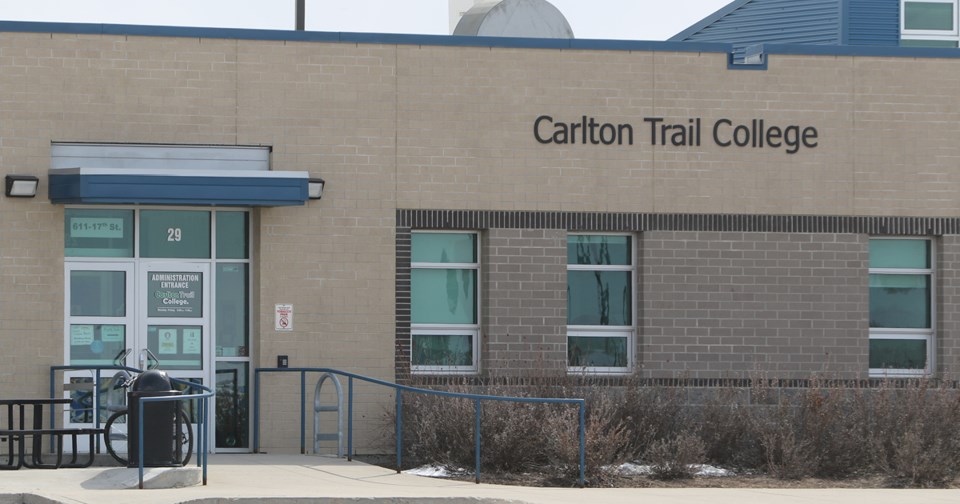EAST CENTRAL — Local colleges say a four-year funding commitment to Saskatchewan’s post-secondary institutions, a first for the province, will make it easier to plan.
“It means that the college will know what level of operating funding it’ll receive until 2025,” said Shelley Romanyszyn-Cross, Carlton Trail College’s president. “This stability and predictability will allow us to plan more effectively over the long term and we are really grateful to the Government of Saskatchewan for this innovative approach to funding.”
The province’s advanced education ministry has committed to funding the colleges’ base operating grant at 2020-21 levels for the next four years. Carlton Trail College will receive $2.46 million per year, St. Peter’s College $1.13 million and Cumberland College $2.37 million.
Mark Hoddenbagh, Cumberland College’s president, told Yorkton This Week that having stable, known funding for the next four years is a very positive situation, especially compared to what was happening elsewhere.
He pointed to Alberta, where there have been cuts of up to five per cent for some post-secondary funding, adding that amount would be “tough to swallow” for institutions that would be then forced to find alternative revenue sources or make cuts that would impact students.
The post-secondary institutions will also be receiving an additional $60 million over the next two years that will be targeted towards COVID-19 recovery, revenue generation, sector collaboration and achieving the strategic initiatives set out in the province’s growth plan.
Of that, Carlton Trail College will receive $118,000 per year, St. Peter’s College $57,000 and Cumberland College $119,000.
“This is a unique opportunity for us, to have funding we can target toward the specific priority areas identified by the government, while ensuring we continue to support business, industry and students in our region,” Romanyszyn-Cross said.
“We want to make sure that we get this right. Over the next couple of months, we will be working towards determining how best we can strategically invest these dollars.”
The province will be expecting an accountability report for how the extra dollars are planned to be spent by June 30.
In a letter signed by advanced education minister Gene Makowsky and immigration and career training minister Jeremy Harrison to the chairs of the three colleges’ board of directors, the two ministers said the funding will pave the way for the post-secondary sector to work together to achieve long-term sustainability, support growth, drive innovation, meet provincial labour market demand and be accountable to the people of Saskatchewan.
“To be successful, we will need to enhance collaboration between post-secondary institutions and industry to ensure programming remains relevant and aligned with the current and future needs of our students, the economy and Saskatchewan communities,” the letter said.
“As a sector, we need to find new ways to create a more integrated and sustainable post-secondary system with effective pathways for students, growing international education and developing new learning opportunities like micro-credentials.”




